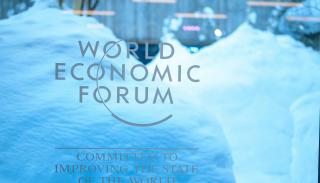
Breadcrumbs navigation
Constructing business authority in global governance: A Bourdieusian account of multi-level meaning fixation
In this short video abstract, Adrian Calmettes and Dominic J Pfister and discuss their key arguments from their new Review of International Studies article - Constructing business authority in global governance: A Bourdieusian account of multi-level meaning fixation
Want to know more? You can read the full article at DOI: https://doi.org/10.1017/S0260210525100922
This is an open access article, however BISA members receive access to RIS (and to our other journal European Journal of International Security) as a benefit of membership. To gain access, log in to your BISA account and scroll down to the 'Membership benefits' section. If you're not yet a member join today.
Abstract
Structural changes like globalisation and technical change have empowered business actors in global governance. Yet to become leaders of global governance rather than mere participants, business actors need to legitimise themselves as working for the public good rather than for the maximisation of profit alone. This paper argues that business power becomes authority through the gradual diffusion of ideals of global governance that legitimate the leadership of business actors. We use the concepts of cultural capital and symbolic capital developed by Pierre Bourdieu to conceptualise the construction of business authority. However, we also expand on existing Bourdieusian accounts, which focus on authority construction within fields, by showing how business actors leverage globalisation and technical change to frame discourses that construct their authority across fields of governance. To demonstrate this, we focus on the case of the World Economic Forum (WEF), which has accumulated enough cultural capital to deploy two particularly influential discourses – multistakeholderism and the 4th Industrial Revolution. We show that, by making sense of complex situations, these discourses functioned as symbolic capital and legitimised both the WEF’s own authority and that of business actors more broadly.
Photo by Evangeline Shaw on Unsplash


